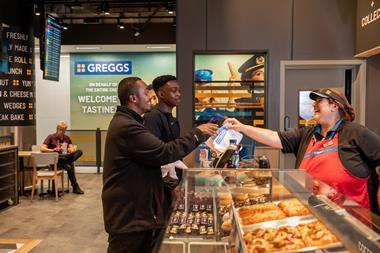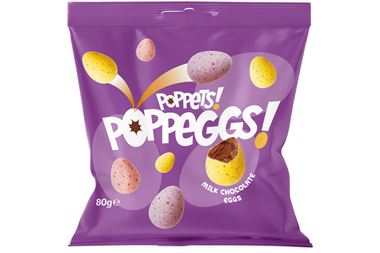The clamour for high stakes in emerging markets should be tempered with caution says FFB which is establishing a network of consultants to increase accessibility to would-be exporters. Ed Bedington reports
When it comes to a fresh new market, most companies are not so much interested in getting a foot in the door as barging it wide open.
This would explain the massive interest in the world's emerging markets, and UK producers are as keen as anyone to get a foothold in what could become a goldmine.
Food From Britain is one organisation that is helping to give British producers a vital boost in setting up in a new market.
The consultancy, which has 12 offices in established UK export markets, is now in the process of establishing a network of consultants in the countries that constitute new markets, with the aim of better tailoring information and advice to an individual company's needs.
New markets manager Matthew Nash says : "In the past we have taken people overseas in large missions, but the size of the group makes it difficult for everyone to get everything they need. Now we are tailoring things on a more individual basis."
If a company approaches FFB, the organisation will contact the relevant consultant and together work out what that company needs to know and where to research the information.
Trade missions are still undertaken, but FFB says it wants to conduct more work on an individual basis as it build its network of consultants.
Nash says there is great deal of opportunity for British companies looking to export to the emerging markets, but serious research and investigation is needed before anyone should consider exporting.
"Setting up export deals and partnerships to get products on shelves can take more than two years. It's not something that happens overnight, nor should it.
"It's not something you do as a way to dispose of some extra goods. You can't just slap a container off to Taiwan."
Nash says FFB can help to provide the means to begin the necessary research using its network of consultants and contacts.
As part of its plans to increase accessibility to the emerging markets for British companies, FFB teamed up with Trade Partners UK to bring over more than 80 buyers from new markets to coincide with this week's International Food Exhibition in London.
Nash says: "In the past we have brought over small groups, but this time Trade Partners UK handled the logistics of the trip, while we ensured the buyers got to meet the producers. That meant we could bring over a lot more people."
During the trip the buyers, from countries as diverse as Taiwan and Poland, were given the opportunity to visit a number of UK stores and meet a wide range of producers, both at IFE and at special events.
Nash says each buyer managed to meet more than 100 producers during the visit. And all the British producers introduced to the buyers were serious about exporting to new markets.
"We wanted to make sure we were matching the right companies with the right buyers, and we wanted to be sure they were in a position to be able to export."
Nash says FFB avoided companies that did not have exporting experience."Companies realistically looking to expand into the new markets need to be quite experienced, for example already exporting to places in Europe."
However the event at IFE was not so much about drumming up extra business according to Nash, but about giving people the chance to learn.
"We were not expecting instant business deals from the event, that's not what it was about. It was very much an opportunity for people to exchange information and ideas; a chance for companies to make contact with people who knew a great deal of information about their areas."
Those circumstances also allow companies to discover that exporting into certain markets would not suit them, which is just as important, says Nash.
"The event may well have discouraged as many as it encouraged, but that's what it was about, to give people a limited amount of information which they could then choose either to build on or not.
"We are not out to promote any of the markets, nor are we looking to convince people to start exporting."
Exporting to emerging markets is not plain sailing, and for a large number of producers, the hurdles may be just too high.
A big issue for the majority of the markets is the strength of the pound. South Africa in particular has fallen victim to the high rate of exchange. Neil Balfour of Tacoma, a company which sources high quality goods for most of South Africa's food retailers, says the strong pound and weak rand makes exports there costly.
But Balfour says there are two ways in which exporting to countries susceptible to the high pound can remain good business for British producers.
"One is to have an unusual, typically British product, the kind of thing that cannot be made anywhere else. It may be more expensive, but there will be people prepared to pay for it.
"The other way is to transfer technology. In other words, find a local company capable of producing your product."
Singapore also suffers from the exchange rate, and British producers face added competition in the form of products from the US and Australia.
Goh Hieng Long of Cold Storage says products can be sourced cheaper in America, and with a strong US influence on the country's culture, British products face an uphill struggle from the start.
In Poland however, it is health fears which appear to be the biggest issue. Jacek Slonowski of SaneChem, a big seafood importer, says Polish people are cautious of British products because of the number of food scares in recent years.
But he adds there is still a great deal of potential for British companies, particularly in ready meals, a market which is doing extremely well in Poland.
However it's not all doom and gloom, and even in the toughest markets there is always a niche waiting to be filled. Other markets such as Hungary, which at the moment remains costly, is worth investing in, in the long term, according to Ferenc Ketting from Hungarian importers Multikon.
He says that high government import levies make importing expensive at the moment, but he is hoping EU membership will see an end to them and any company exporting to Hungary will reap the rewards.
Nash agrees, saying the companies likely to succeed when it comes to exporting are those prepared to look at the long term, rather than short term profits.
"The successful companies are the ones which take the long term strategic approach to developing business in these markets.
"Exporters should look at foreign markets as an extension of their domestic operations. It takes time to develop any brand, no matter what the market."
Nash says it is too early to tell whether the buyers' visit will prove fruitful for British producers, but he hopes the event will be the first of many, giving all UK companies the chance to learn more about some of the most interesting markets in the world.
{{FEAT. GENERAL }}
Close menu
- Home
- Retail & Wholesale
-
Products & Suppliers
- Back to parent navigation item
- Products & Suppliers
-
Product Categories:
- Back to parent navigation item
- Product Categories:
- Alcoholic drinks
- Bakery
- Cereals & breakfast
- Cheese
- Chicken & poultry
- Chocolate
- Confectionery
- Crisps, nuts & snacks
- Dairy
- Fish
- Fresh produce
- Frozen
- Household
- Meat
- Own Label
- Sauces & condiments
- Seasonal
- Soft drinks
- Vaping
- Vegan & plant-based
- World foods
- Suppliers
- People
- Reports & Data
-
Topics A-Z
- Back to parent navigation item
- Topics A-Z
-
Popular topics:
- Back to parent navigation item
- Popular topics:
- Cost of living crisis
- Crime
- Deposit Return Schemes
- Finance
- Government & Regulation
- Health
- Inflation
- Loyalty
- Marketing
- Mergers & Acquisitions
- New Product Development
- Sourcing
- Supply chain
- Sustainability & environment
- Technology
- Ultra Processed Foods
- Vaping
- A-Z all topics
- Content by type:
- Events
- Ask iA (beta)
- Subscribe now
Sign in to comment on this article
Not logged in before? Register for FREE guest access today.
You will be able to:
- Read more stories
- Receive daily newsletters
- Comment on stories
Advert















No comments yet